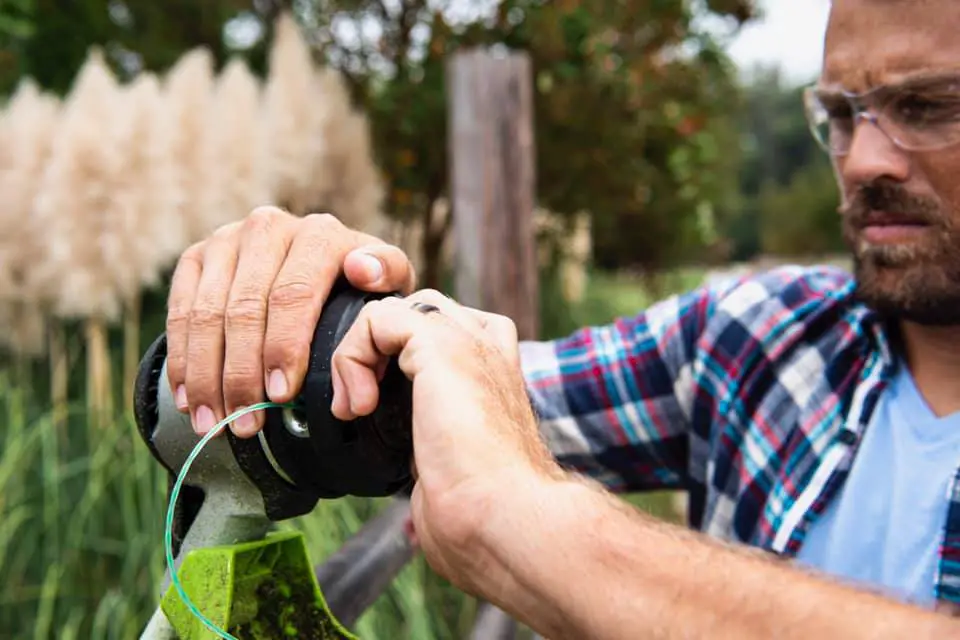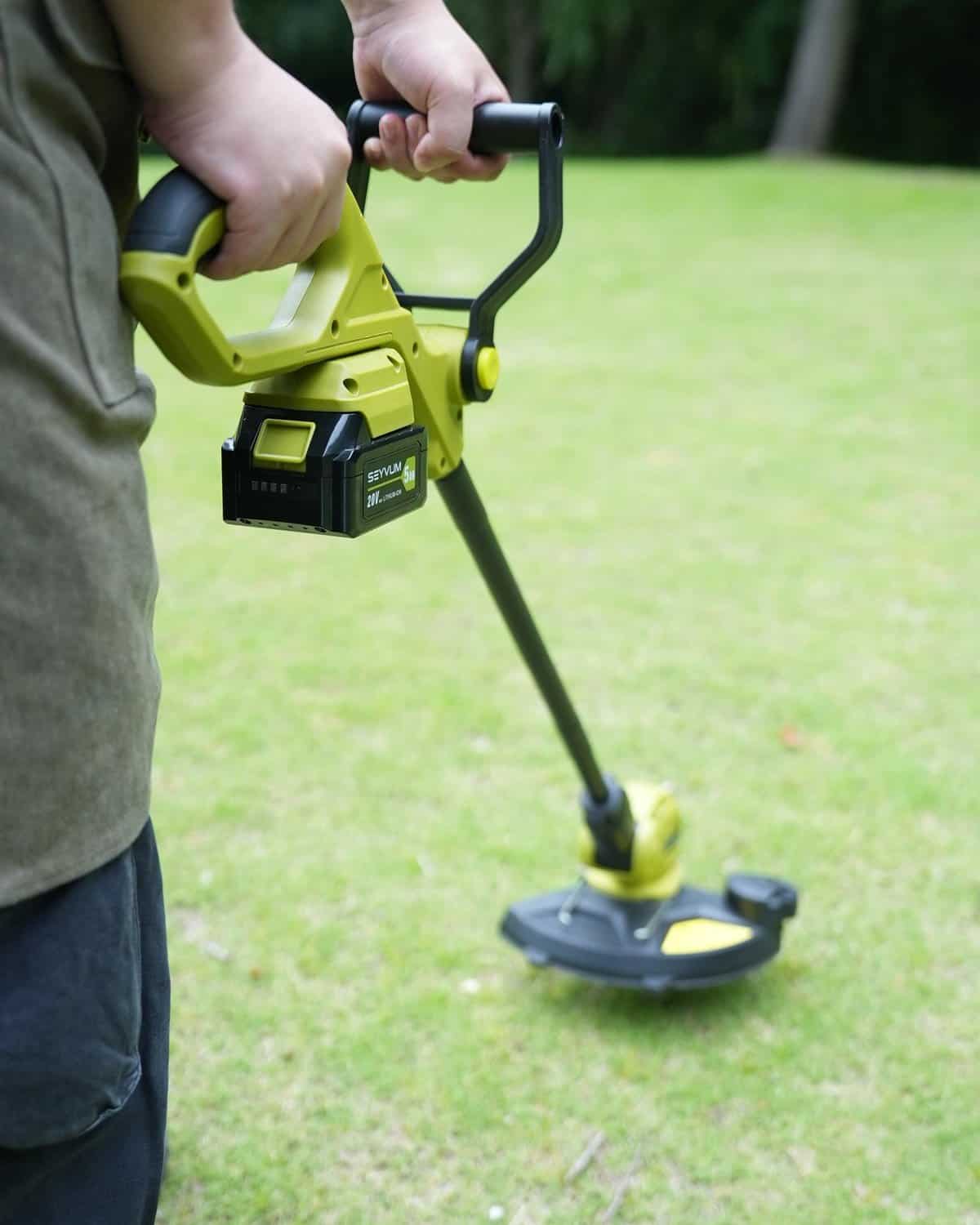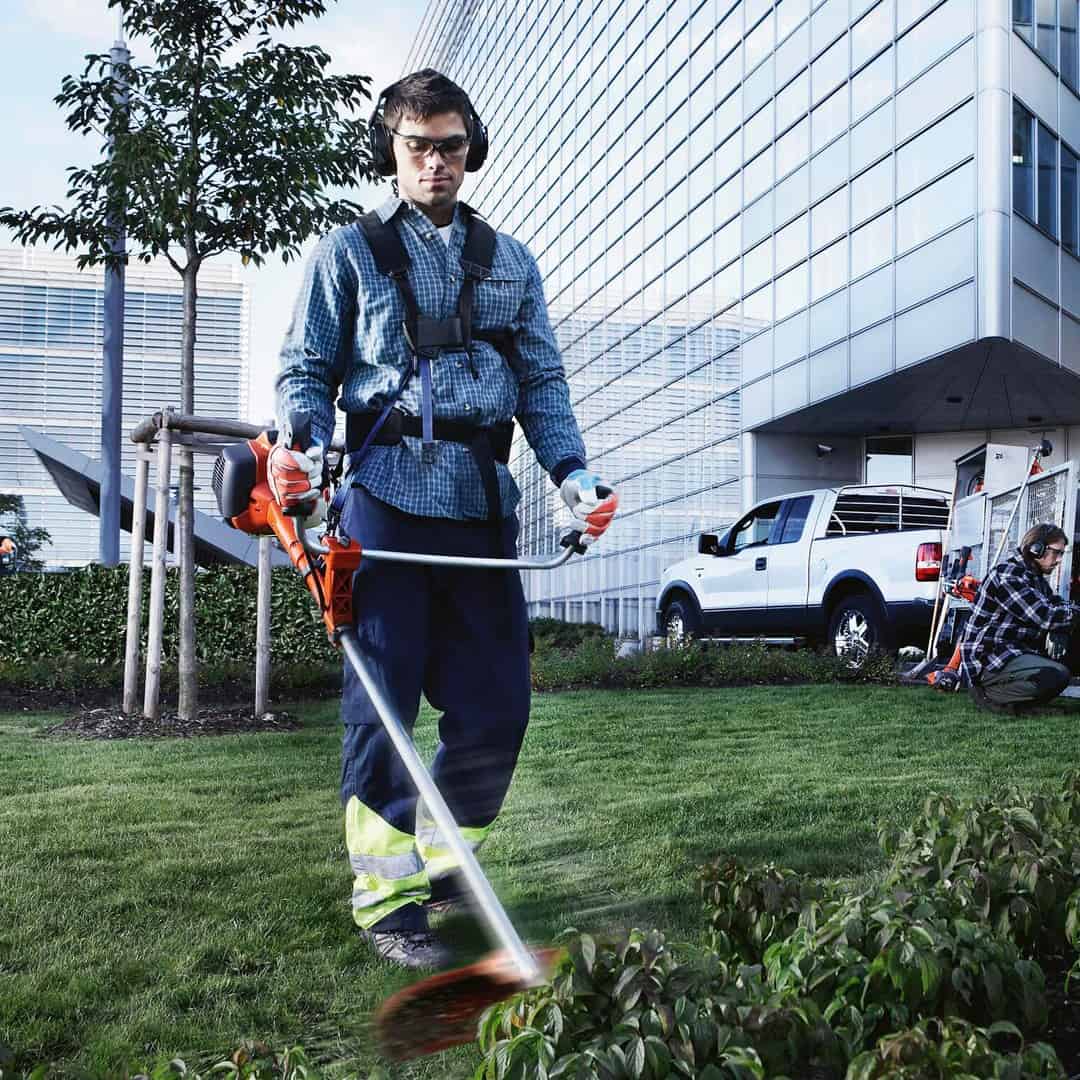Good day!
Does your string trimmer do more harm than good? I’ve often wondered the same, especially after learning that these handy tools can carry an environmental impact. Don’t worry—this article is here to shed some light on the issue.
Let’s dive into whether string trimmers are bad for our planet and what we can do about it!
Contents
Are String Trimmers Bad For The Environment?
Yes, string trimmers can harm our earth. The lines in the trimmer are often made from nylon or plastic. These materials do not break down over time. They turn into tiny pieces when the line breaks or wears out.
This adds to plastic pollution.
String trimmers also make dirty air and noise. Many use two-stroke engines that release bad gases into the air we breathe. They make a lot of sound too which is not good for us or animals around us.
The blades of the trimmer, even if they’re plastic, shed microplastic waste as they erode.
Not only this, but string trimmers can also hurt small habitats where bugs and other little creatures live in your yard’s grass and plants. So yes, using these tools might damage our environment more than we think.
Environmental Impact of String Trimmers
String trimmers have a significant environmental impact, including non-biodegradable trimmer line, air and noise pollution, and habitat destruction.
Non-biodegradable trimmer line
Many trimmer lines last way too long. They are made from plastic that can stay around for up to 1,000 years. This is a problem because most brands don’t break down naturally. In fact, only one biodegradable option exists in the store.
This tough stuff is called nylon. It causes bad pollution problems and even hurts fish and other water animals. We know that non-biodegradable trimmer lines play a big part in making string trimmers harmful to our world.
Read more: How Long Do String Trimmers Last?

Air and noise pollution
String trimmers do harm more than just your weeds. They hurt our air and make a lot of noise too. These tools spew small dirt particles into the air we breathe. They also let out bad gases from the fuel they burn.
String trimmers are trouble sound makers as well, disturbing our peace with their loud noise. We may not see this right away, but over time it harms us all, people and pets alike.
Habitat destruction
Habitat destruction is a big problem caused by string trimmers. This can harm many plants and animals around the world. When using string trimmers, there is a risk of accidentally damaging trees and shrubs by hitting them with the trimmer line or cutting their leaves.
This can cause serious harm to these plants. Additionally, habitat destruction disrupts ecosystems and leads to a loss of different types of living things. It can even spread invasive weeds that are not native to an area, which harms the local plants and animals even more.
String trimmers also contribute to pollution when non-biodegradable trimmer lines are improperly disposed of and end up in waterways where they take many years to decompose. So it’s important for us as lawn owners to be mindful of these environmental impacts when using string trimmers on our lawns.
Alternatives to Traditional String Trimmers
There are several alternatives to traditional string trimmers that can help reduce their environmental impact. Electric trimmers, manual trimmers, and organic weed control methods offer more sustainable options for maintaining your lawn.
Read on to learn more about these alternatives and how they can benefit both your yard and the environment.
Electric trimmers
Electric trimmers are a great alternative to traditional gas-powered ones. They are better for the environment because they don’t release harmful emissions into the air. Electric trimmers start up easily and work quietly, making them more convenient to use.
You can choose between corded or battery-powered models, giving you flexibility in how you trim your lawn. With electric trimmers, you can keep your yard looking neat while also being environmentally friendly.
Read more: Are String Trimmers Dangerous?

Manual trimmers
Manual trimmers are an alternative to traditional string trimmers that can be more friendly to the environment. These tools, like brush cutters, lawn edging shears, scythes, sickles, mowers, and shovels, do not rely on gasoline or electricity to operate.
Instead, they require physical effort as you manually trim your lawn or garden. By using manual trimmers, you can reduce air and noise pollution since there are no engines running or loud noises being made.
Additionally, these tools do not produce any emissions that could harm the environment. Manual trimmers also eliminate the need for non-biodegradable trimmer line because they don’t use string-like materials for cutting grass and weeds.
Organic weed control methods
I prefer using organic weed control methods to keep my lawn healthy. Instead of relying on harmful chemicals, I choose environmentally friendly options that won’t harm the ecosystem. Here are some effective alternatives to traditional string trimmers:
- Cutting weeds with a string trimmer: This method allows me to remove the unwanted growth without damaging the surrounding grass.
- Hoeing: By using a hoe, I can easily uproot weeds from the soil, preventing them from spreading further.
- Tilling: Turning over the soil helps expose weed roots, making it easier to remove them manually.
- Mulching: Applying a layer of mulch around plants helps suppress weed growth by blocking sunlight and preventing seeds from germinating.
- Cover cropping: Planting cover crops like clover or rye can compete with weeds for nutrients and space, reducing their growth.
- Hand weeding: Although it requires more effort, pulling weeds by hand is an effective and chemical-free way to eliminate them.
Conclusion
In conclusion, string trimmers can have a negative impact on the environment. The non-biodegradable trimmer line, air and noise pollution, and habitat destruction caused by these machines contribute to environmental problems.
It is important to explore alternatives like electric or manual trimmers and organic weed control methods to minimize the harm done by traditional string trimmers. By making more eco-friendly choices, we can help protect our environment for future generations.
FAQs
1. Can I use a string trimmer without causing harm to the environment?
Yes, you can minimize environmental impact by using newer models with lower emission levels, following proper maintenance procedures, and avoiding overuse.
2. What are some eco-friendly alternatives to string trimmers?
Some eco-friendly alternatives include hand tools like manual weed pullers or scythes, as well as electric or battery-powered trimmers that produce less pollution.
3. How can I dispose of my old string trimmer responsibly?
To dispose of an old string trimmer responsibly, you should check local recycling centers or hazardous waste facilities for guidance on proper disposal methods in your area.


